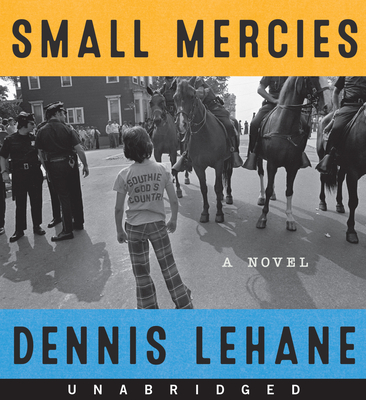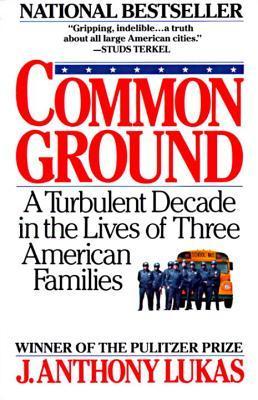These Women by Ivy Pochoda
- Harper Audio, 2020
- Narrated by: Bahni Turpin and Frankie Corzo
- ISBN 978-0-0630-0546-4

This novel well deserves the recognition it received: ITW Thriller Award Nominee for Hardcover Novel (2021), Los Angeles Times Book Prize Nominee for Mystery/Thriller (2020), Edgar Award Nominee for Best Novel (2021). Set in Los Angeles, it tells the stories of women who represent the outcasts, the marginalized and the expendable members of society.
West Adams is a rapidly changing area in South Los Angeles where formerly majestic mansions are being converted into boarding houses and homeless people camp out along the freeway entrance ramps. It’s where, in 1999, 13 women were killed by a serial killer. The victims were all identified as associated with the sex trade, either prostitutes or exotic dancers. These women didn’t rate much of a police investigation.
Now, 15 years later, a new series of killings has begun. The novel swings between 1999 and 2014 to present the lives of six women involved in the killings:
- Feelia, the last victim in the 1999 killing spree; she had her throat slit but survived.
- Dorian, whose daughter, Lecia, was the last young woman to die at the hands of the 1999 killer; Dorian continues to inquire frequently about the police investigation into Lecia’s death.
- Julianna, an 11-year-old girl Lecia was babysitting for when she was killed; now a stripper known as Jujubee, she’s an aspiring artist who documents the lives of her friends with photos taken on her phone.
- Essie, a Latina police detective who recognizes the return of the same serial killer; she reports her suspicions up the command chain but is brushed off.
- Marella, Julianna’s next-door neighbor, is a young-adult performance artist who spent much of her earlier life away at boarding school.
- Anneke, Marella’s mother; she works in an elder-care home and obsesses about keeping her home and family safe.
The overlap of characters between 1999 and 2014 indicates that not much has changed in the 15 years the novel covers. These women continue to exist in a society that considers them expendable. The novel’s strength lies in its humanization of the characters and its condemnation of a society that continues to prey on and cast aside some of its most vulnerable members.

Small Mercies by Dennis Lehane
- Harper Audio, 2023
- Narrated by: Robin Miles
- ISBN 978-0-0621-2958-1
Small Mercies is set in Boston in the summer of 1974 as the city prepares to integrate its public schools. The first step in integration will bus high school students between “Southie,” the predominantly white, working-class housing projects of South Boston, and Roxbury, the city’s Black section.
The focal character in the novel is Mary Pat Fennessy from Southie, whose 17-year-old daughter, Jules, is about to begin her senior year. But Jules has disappeared, and as Mary Pat’s search for her daughter gets more and more frantic, anti-busing demonstrations also escalate.
Mary Pat’s search for Jules takes her all over Southie and introduces readers to the insular nature of the history and culture of the neighborhood. The city of Boston, though fairly compact, comprises several such self-contained areas, each with its own unique culture and population. Even though Southie and Roxbury are adjacent, they might as well be on different planets. Desperate to find Jules, Mary Pat approaches everyone she knows and, in the process, reveals how much the culture she was raised in has shaped her beliefs, her values, and her identity.
As suspense and dread increase, so do Mary Pat’s attempts to convince herself that she’s not racist—although she acknowledges that, deep down, she really is. Mary Pat isn’t unhinged, but she definitely experiences mental disquiet as she realizes her own part in creating and maintaining the culture that has fostered the social tensions about to explode—the culture that has previously swallowed her son and now her daughter.
Discussion: Life Stories in Literature
Life Stories in Literature
Themes
identity
family
we are what we remember
inside vs. outside stories
imposters
hidden identities & secrets
trauma
creating/controlling one’s own narrative
cultural appropriation
alternate life options
alternative selves
turning points/life decisions
when/how lives intersect
multiple points of view
rewriting history
change your story, change your life
Both These Women and Small Mercies deal with individuals’ relationship with their society and how that society shapes their beliefs, values, and self-concept.
Dennis Lehane, born and bred in Boston, explains why he wrote Small Mercies:

“I have daughters, and I adore them. It’s like my heart is living outside my body. I don’t know why I did it, why I chose to write about this, but I think it was all tied into this: the book is a raging howl against racism. The utter stupidity of racism, how profoundly destructive it is to every single person, including the racist. I think by looking at something so tragic, so unimaginable as losing your daughter, it fueled the rage, and this book is about rage. It was my rage, too.”
— Dennis Lehane
In this article in The New Yorker Laura Miller examines Lehane’s career and his “tragic vision of Boston’s working-class enclaves.”
Boston’s 1974 attempt at school desegregation was a landmark not only in the city’s history but also in the country’s civil rights’ reckoning. For more information about this pivotal event, see Common Ground: A Turbulent Decade in the Lives of Three American Families by J. Anthony Lukas (Vintage, 1986). This deeply researched, informative work received the Pulitzer Prize, the National Book Critics Circle Award, the Robert F. Kennedy Book Award, and the American Book Award.

Finally, both These Women and Small Mercies use the mystery genre—the commission of a crime and the ensuing investigation to identify and bring the perpetrator to justice. Mystery novels are an especially useful form with which to present stories that examine the relationship of both criminals and victims to the societies in which they live:
What we read for in crime fiction, after all, isn’t always the resolution of a mystery; it’s also to understand what it’s like to construct a life in the aftermath of trauma and tragedy.
—Polly Stewart, author of The Good Ones
In these novels both Pochoda and Lehane have chosen to focus on the victims rather than on the criminals to emphasize the cultural significance of the events presented.
© 2023 by Mary Daniels Brown


